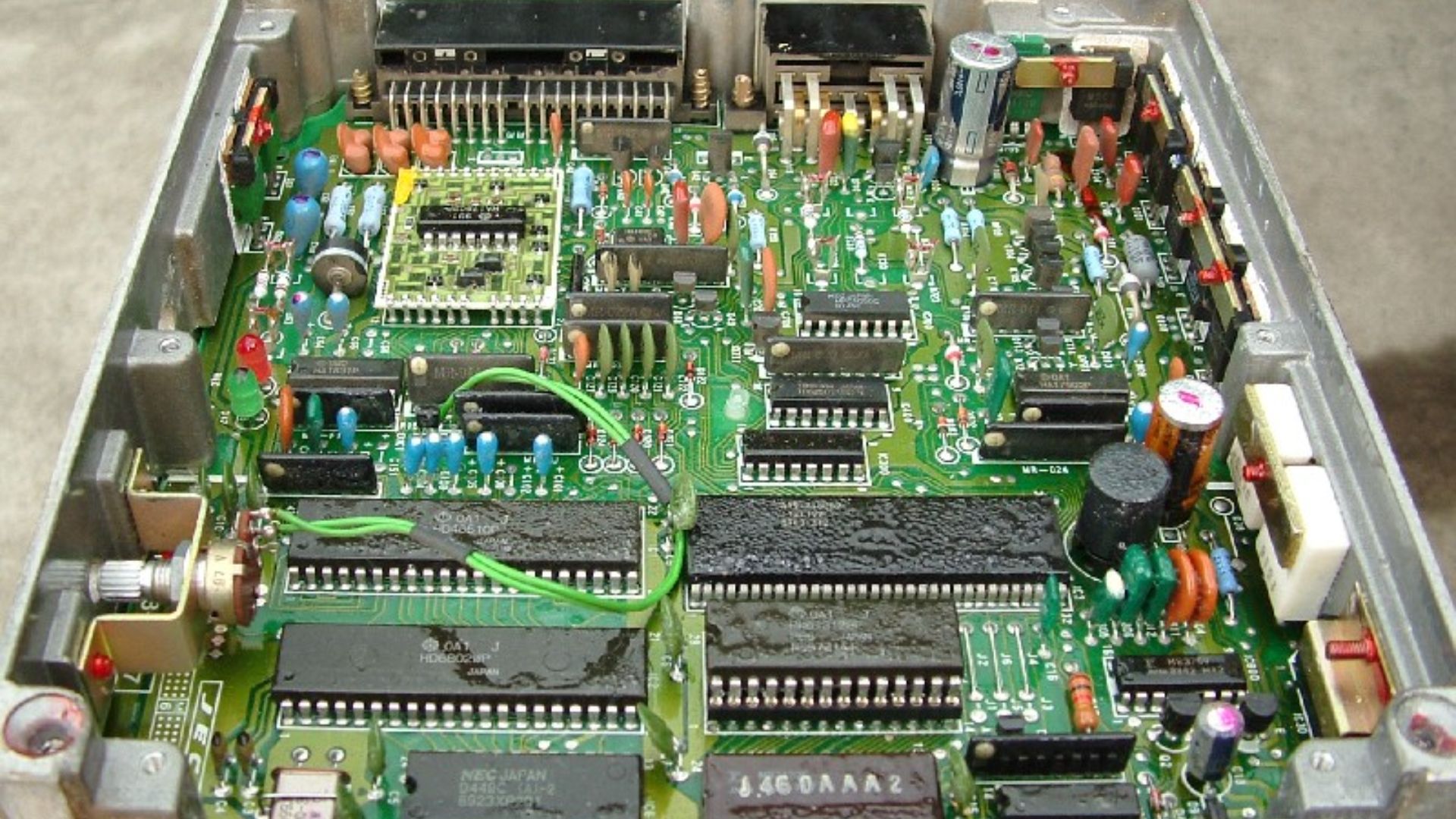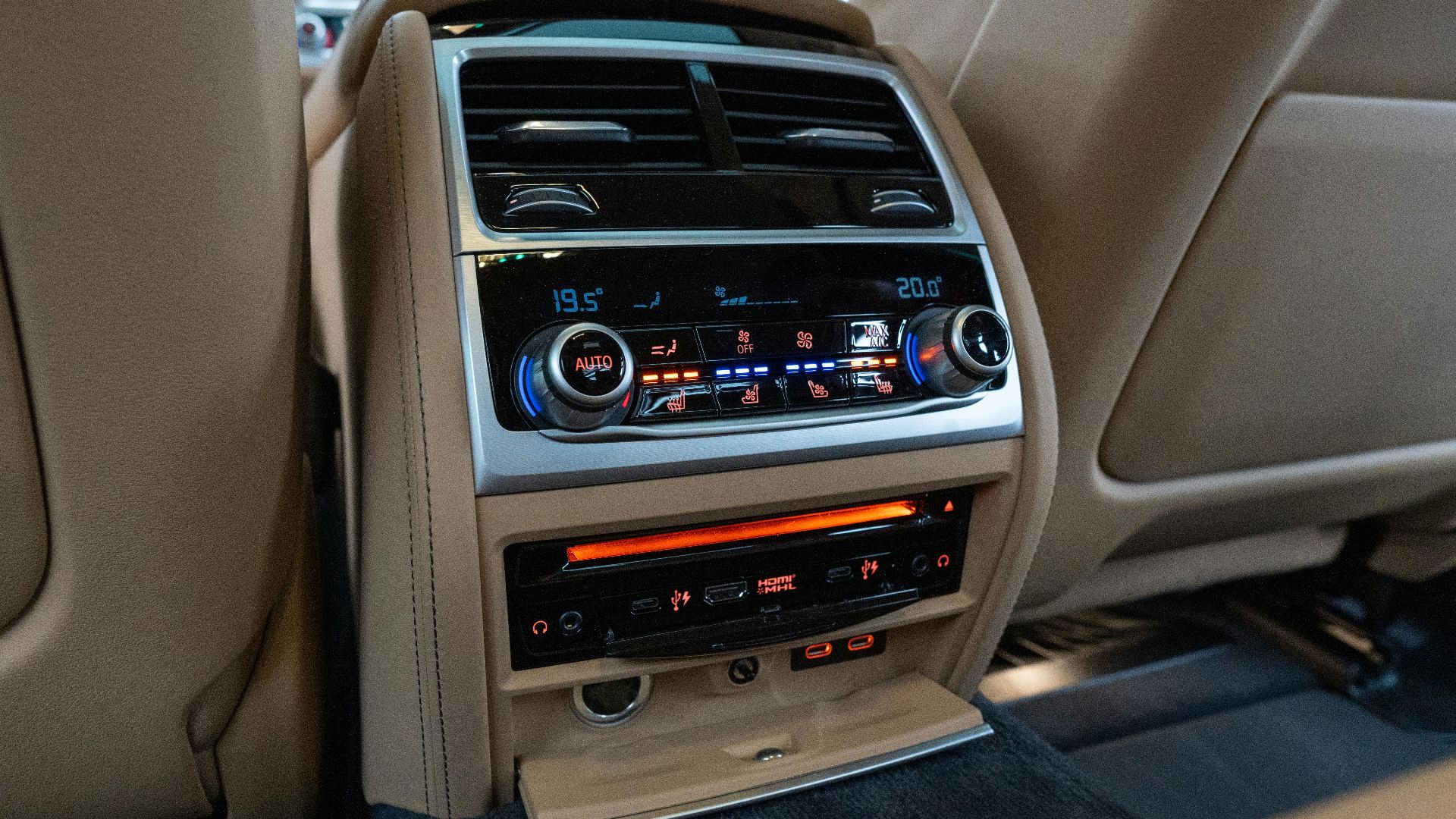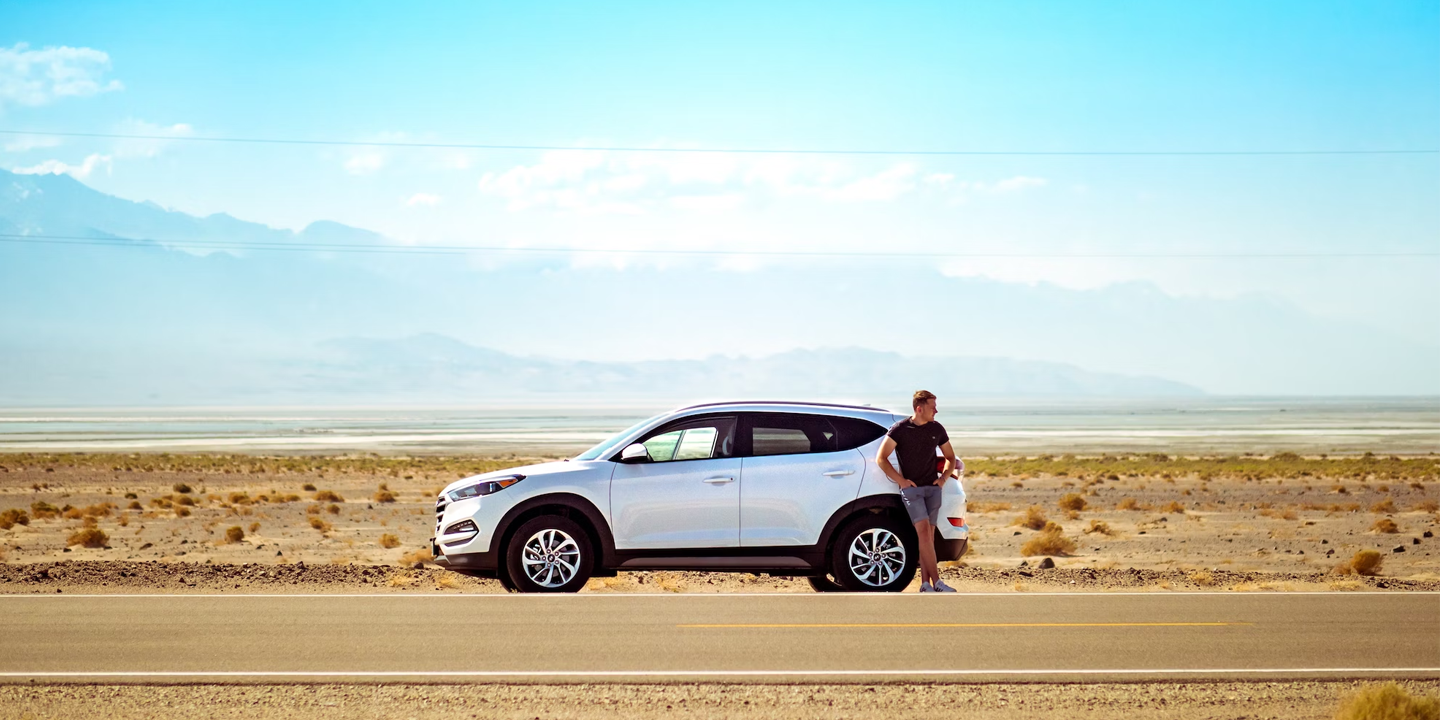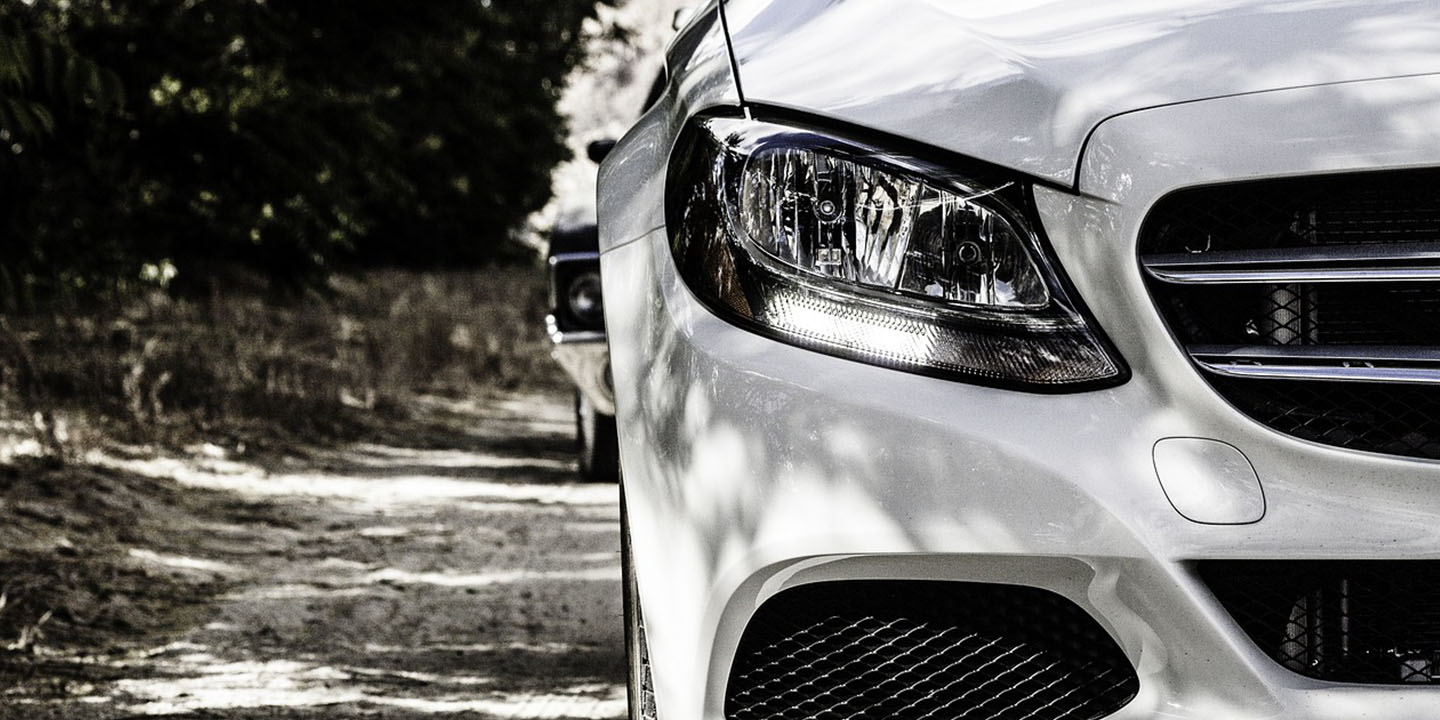When Repairs Get Pricey
Most people think of car costs in terms of fuel and occasional oil changes. But the real shock hits when something breaks. Modern vehicles are packed with complex systems and high-tech components. And when those parts fail, the replacement costs are painful. Some items are expensive because they’re labor-intensive to replace. Others are costly because they are tied to advanced features. So, let’s get into the parts that hurt your budget the most when they stop doing their job.
1. Engine Control Unit [$1,000–$3,000]
The ECU is a core component that manages key functions like fuel injection, air intake, and ignition timing. Replacing the ECU requires it to be programmed to fit the specifications of the vehicle. This process typically requires a certified technician.
 RB30DE at English Wikipedia on Wikimedia
RB30DE at English Wikipedia on Wikimedia
2. Hybrid Battery Pack [$2,000–$8,000]
A hybrid battery pack powers the electric motors in hybrid and electric vehicles. These batteries generally last 8 to 10 years before requiring replacement. While some packs are recyclable, the disposal process can involve additional financial costs.
3. Catalytic Converter [$900–$2,500]
The catalytic converter is built with precious metals like platinum, rhodium, and palladium, which explains its high cost and why it’s a common target for theft. In many states, a functioning catalytic converter is required to pass emissions testing, making it a legal necessity.
 Ahanix1989 at English Wikipedia on Wikimedia
Ahanix1989 at English Wikipedia on Wikimedia
4. Transmission Assembly [$1,800–$5,000]
No car moves without a working transmission. Automatic and dual-clutch transmissions come with higher costs due to their intricate design. With high labor demands and complex components, this part ranks among the costliest to repair or replace.
5. Air Suspension System [$1,000–$4,000]
Luxury vehicles often rely on air suspension systems for a smoother ride. When a leak develops, one side of the vehicle may visibly sag, affecting both ride quality and handling. That’s why repairs are expensive due to the system’s complexity and the labor required to access and service the components.
 How does an Air Suspension System work? by Bag Riders Air Suspension
How does an Air Suspension System work? by Bag Riders Air Suspension
6. Turbocharger [$1,000–$3,500]
Found in many performance and fuel-efficient vehicles, a turbo can raise horsepower by 30% or more. One of the most common reasons for failure is oil starvation, which can quickly degrade internal components. Lastly, replacing a damaged turbo gives the precision required to handle such a high-stress part.
 Quentin Schwinn (NASA) on Wikimedia
Quentin Schwinn (NASA) on Wikimedia
7. Timing Belt And Associated Components [$500–$1,500]
In interference engines, a snapped belt can cause catastrophic internal damage. Manufacturers specify strict mileage intervals, typically between 60,000 to 100,000 miles, for replacement to avoid engine failure. Some engines use timing chains instead, which last longer but come with higher replacement costs.
 Subaru EJ Series Engine Timing Belt Components Inspection & Common Faults by MrSubaru1387
Subaru EJ Series Engine Timing Belt Components Inspection & Common Faults by MrSubaru1387
8. Cylinder Head Gasket Repair [$1,200–$3,000]
The head gasket blocks the gap between the car's engine block and the cylinder head, which prevents oil from mixing or leaking. When it blows, you’re likely to see white exhaust smoke and rising engine temperatures. Ignoring it can lead to engine damage.
9. Fuel Injector System [$800–$2,500]
Fuel injectors control how much fuel enters each cylinder, and precision is critical for engine performance and efficiency. Repairs can get expensive, particularly in vehicles with six, eight, or more individual injectors. Maintaining this system with proper fuel and periodic cleaning helps prevent early failure.
10. Radiator Replacement [$400–$1,200]
Engine temperature regulation starts with the radiator. In newer models, added components like sensors or transmission cooling lines can increase both complexity and cost. A failing radiator can’t be ignored, as without it, engine damage becomes a real possibility.
 How to Replace Radiator 2008-16 Chrysler Town & Country by TRQ
How to Replace Radiator 2008-16 Chrysler Town & Country by TRQ
11. Infotainment And Navigation System [$1,000–$2,800]
Modern vehicles rely heavily on infotainment systems to manage everything. These systems use proprietary software, meaning replacements typically require dealer-level programming and updates. Because of the system’s integration with other vehicle functions, repair costs add up quickly.
12. Brake Master Cylinder And Booster [$500–$1,500]
This system pressurizes brake fluid to deliver consistent braking force. A failing booster makes the pedal stiff and reduces responsiveness. Some cars use vacuum or hydraulic assist, and leaks can disable the entire brake system.
13. Car Key With Integrated Fob [$200–$750]
Modern car keys go beyond unlocking doors—they include chips, remote start, and proximity features. Replacements require dealership reprogramming and custom cutting. Plus, some luxury models even feature LCDs or fingerprint sensors.
14. Powertrain Control Module [$900–$2,200]
The PCM oversees engine and transmission performance. Failure lights up the dashboard and triggers confusing symptoms, and replacement requires VIN-specific programming. Because it mimics other problems, misdiagnosis is common.
 How to Upgrade a Powertrain Control Module (PCM) by Car and Driver
How to Upgrade a Powertrain Control Module (PCM) by Car and Driver
15. High-End Alloy Wheels [$1,200–$4,000/set]
Alloy wheels made of aluminum or magnesium offer improved performance. They're vulnerable to curb rash and pothole damage, requiring costly repairs or replacement. While they can boost resale value, they may also raise insurance premiums due to theft risk.
16. Driveshaft Or CV Axle [$500–$1,600]
This component transfers torque from the transmission to your wheels. When CV joints wear, you’ll hear clicking during turns. AWD vehicles have extra shafts, which raises repair costs. Furthermore, high-performance or truck-grade versions are pricier.
 Here's Why You NEVER TOUCH Your TOYOTA CV Axles!! by 1ROAD
Here's Why You NEVER TOUCH Your TOYOTA CV Axles!! by 1ROAD
17. Advanced Driver-Assistance Sensors [$750–$2,500]
Modern safety features rely on these sensors to handle tasks like lane-keeping, adaptive cruise, and emergency braking. After windshield or bumper work, recalibration is required. And even minor misalignment can trigger impaired driving assistance functions.
18. Climate Control System (HVAC) [$1,000–$2,000]
If your car's cabin feels more like a sauna than a sanctuary, the climate control system might be silently crying for help. Modern HVAC setups pack in compressors, actuators, sensors, and slick touchscreen controls. Fixing it is a full evacuate-and-recharge job.
19. Leather Upholstery And Seat Repairs [$1,500–$5,000]
That luxurious leather seat didn’t come cheap, and neither will fix it. Everyday culprits like pet claws and harsh sunlight silently chew through the finish. And if you think the whole seat gets swapped—think again. Skilled pros replace it panel by panel, one painstaking section at a time.
20. Sunroof Or Moonroof Replacement [$1,000–$2,500]
What starts as a luxury quickly turns costly when your sunroof acts up. Its motor, tracks, seals, and fragile glass all work in sync—until wear creeps in. Panoramic glass cracks more easily, and if it jams, structural integrity suffers, too.




















